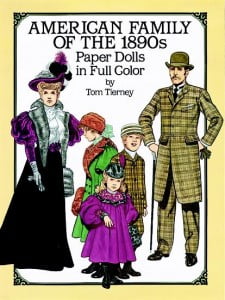
Stress appears to be part of almost everyone’s busy, 21st Century lives: all of us today, it seems, are stretched, worn thin, over-committed, and worried about something.
From one perspective, it does indeed seem as though our lives have gotten more complicated, that threats and dangers are everywhere, and that many of us have good cause for feeling that our lives –both individually and as a society- have gotten out of control. From the tragedy of 9/11 to the Great Recession; from a hyper-partisan political system that seems to no longer have any place for civility or compromise, to mass shootings and other crimes reported on TV; from prices that seem to go up faster than we can keep up, to the schedule juggling most families go through trying to accommodate the differing commitments of parents and kids, there is ample reason for thinking that we live in an age and in a world that is almost designed to create uncertainty and make us feel stressed.
It is not uncommon for people to think that their world is somehow less stable and less enjoyable…less livable…than were the worlds of their parents or grandparents. Today, particularly among Baby Boomers, there is a fond eye often cast back to the 1950s and 60s, when things were simpler, less stressed…somehow “better.”From another perspective, however….
In the 1960s, however, it wasn’t uncommon for people to look back to the 30s or even further as representing times when things were “simpler and better.” In fact, two of Rod Serling’s most famous Twilight Zone episodes –“Once Upon a Time” and “A Stop at Willoughby”– took their early 60s audience to just the sort of bucolic past that adults of that era thought they remembered in stories from their parents or grandparents.
But the truth is that no era has been stress free or particularly livable to those living through it. There were severe crop failures and economic crises in the 1700s and 1800s; and in the mid-1800s, the Civil War tore the country in two. In the 1890s tuberculosis, measles, smallpox, Scarlet fever and diphtheria could all be fatal diseases, while infected injuries and even childbirth were all too common causes of death.
The first twenty years of the 1900s saw World War I, days of Al Capone’s murderous gangland warfare and, of course, the onset of the Great Depression; the 30s were witness to the rise of fascism, the Dust Bowl, the worst of the Depression, and the likes of gangsters Bonnie & Clyde, John Dillinger, Pretty Boy Floyd, and Baby Face Nelson.
The 1940s were ushered in by World War II and all of its horrors, and then saw the rise of the Atomic Age, the emergence of the Red Menace and Stalin’s desire for world domination, and ended with war in Korea; the fifties were a time, for all their “charm,” of “Jim Crow” laws and outright racial discrimination, the depredations of the KKK, the McCarthy hearings, and the ever present threat of nuclear war. The sixties saw the world come to the brink of such a war with the Cuban Missile Crisis, the tumult of racial riots, the assassinations of John and Robert Kennedy, Martin Luther king, Jr., and the Viet-Nam War.
The point is that our time, for all its tumult and uncertainty, is no more “stressful” than have been any other times in the past; the difference is that we are living these times and so we feel its pressures most acutely.
Maybe, when we are feeling stressed by the demands and events of our times, it might be occasionally useful to think of the things we have today that previously generations didn’t have. One the one hand, we have computers and jet travel, things that seemed to belong to science fiction not that many decades ago. And yes, we have seen the ravages of Nature in hurricanes Katrina, Irene, and, most recently, Sandy, in the past few years. But the technology we have today at least offers people ample warning and the opportunity to be prepared…a far cry from storms of the past that seemed to come out of nowhere and devastated entire communities before any meaningful alarm could be sounded. But more than that, we have antibiotics and all the tools of modern medicine. We enjoy instant global communications. On the most basic level, the running water and indoor plumbing, and central heating (not to mention air conditioning!) that most of us enjoy were unheard of in many places as recently as 70 years ago.
In the end, all times are stressful for those living in them. Our time, although it might seem crazily demanding and uncertain to us, is no worse –and in a lot of ways much better- than days gone by. Something to think about the next time you find yourself feeling stressed and wishing for that “the good old days” were here once more; for the truth is, they weren’t really all that good.
